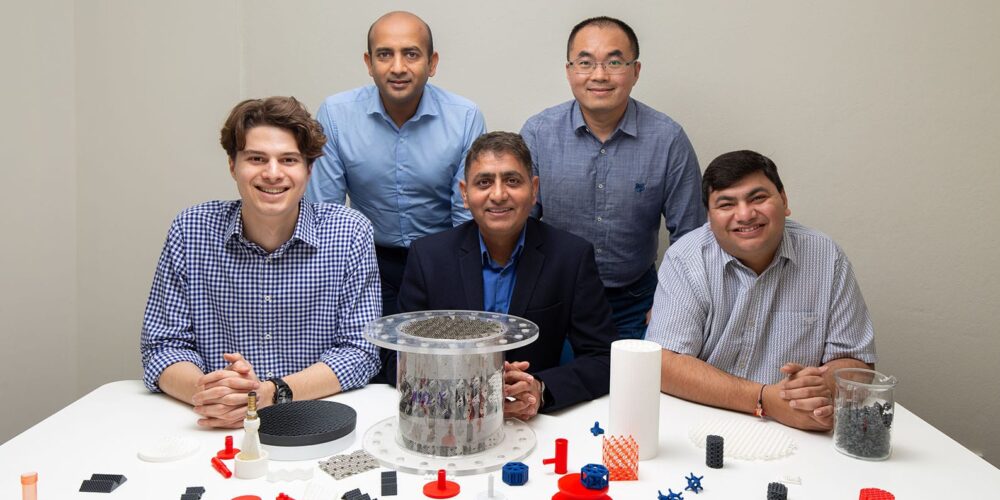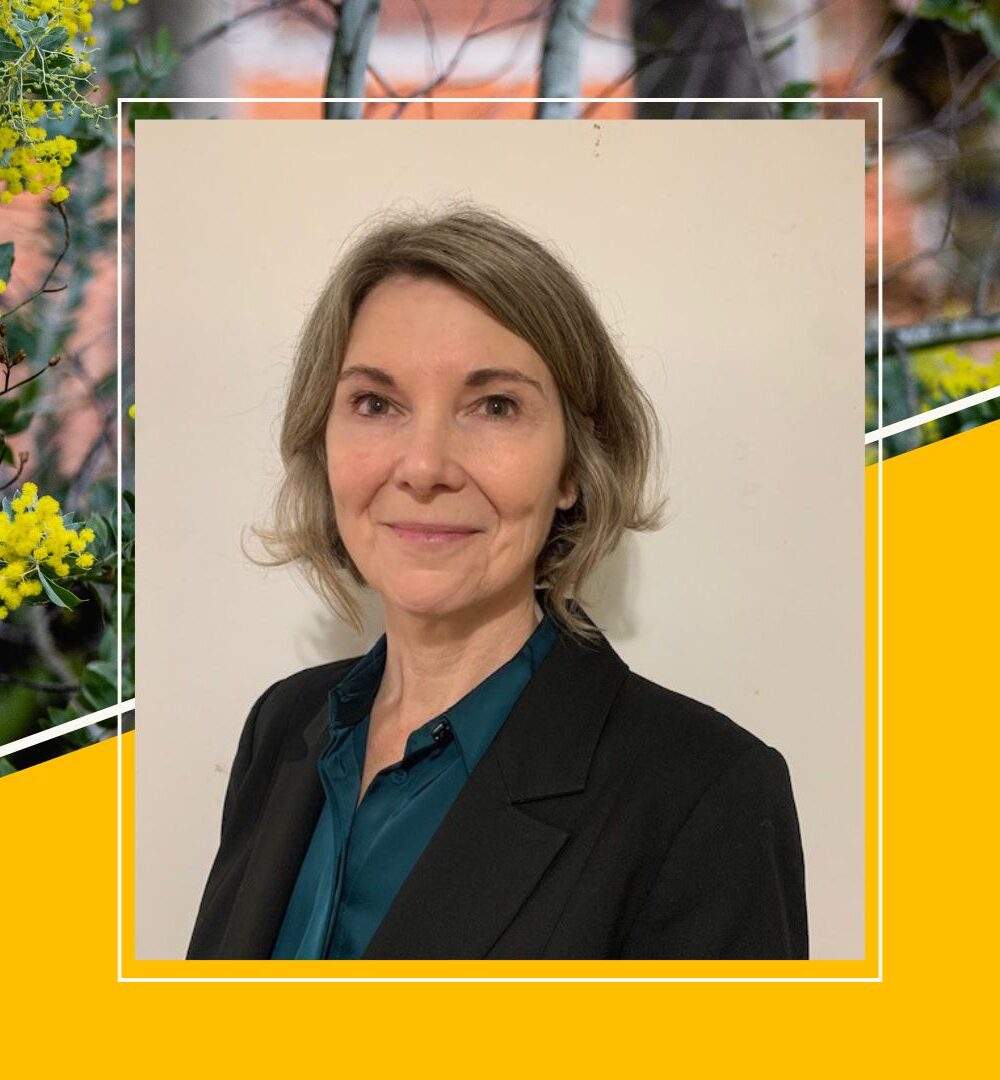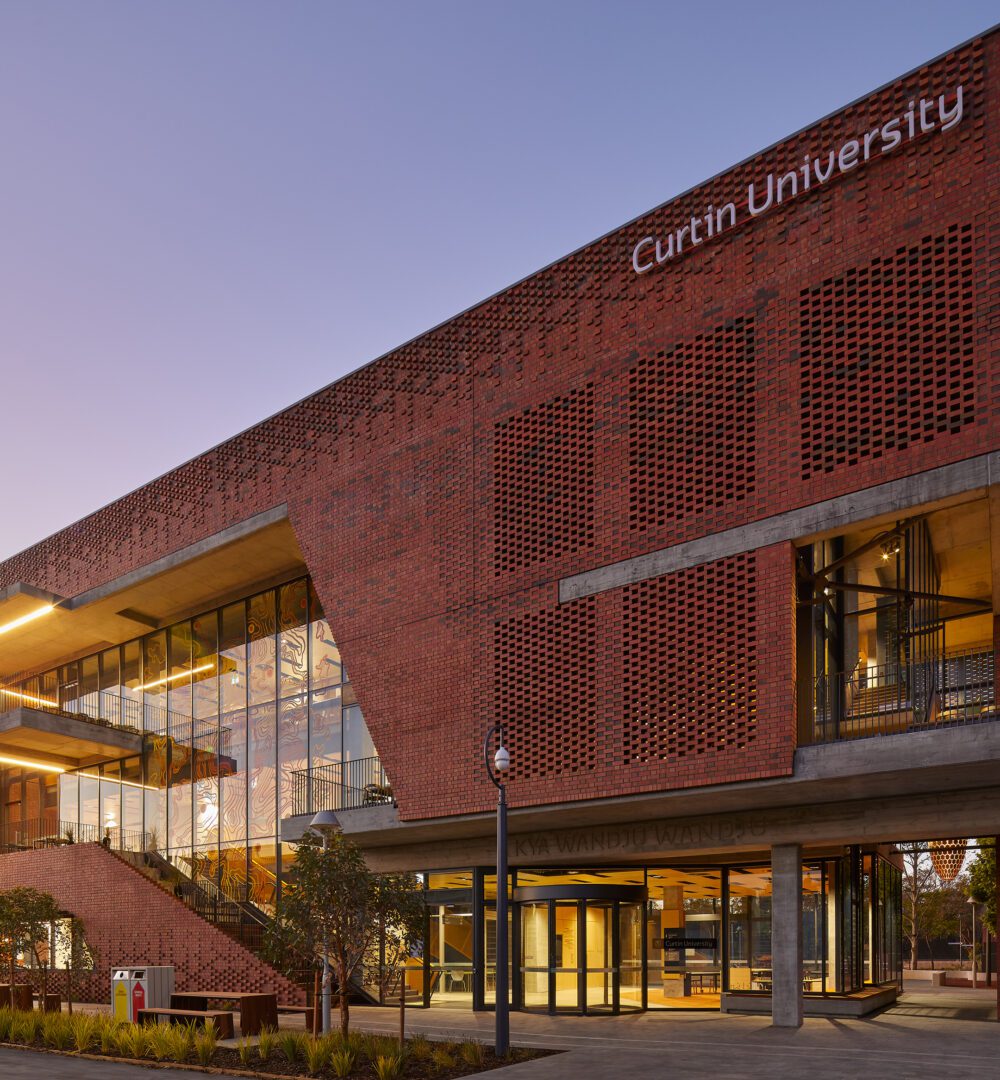Oil and gas industry invention wins top honours at Curtinnovation Awards

A technological development that has the potential to save Australia’s oil and gas industry millions of dollars each year has been crowned the overall winner at the 2019 Curtinnovation Awards.
Developed by Dr Tejas Bhatelia and a team of researchers at Curtin’s Western Australian School of Mines: Minerals, Energy and Chemical Engineering using the Pawsey Supercomputing Centre and 3D printing, SpiroPak draws inspiration from nature in a design that provides a more effective and energy-efficient separation of carbon dioxide from natural gas in LNG processing.
The Curtinnovation Awards recognise exceptional research outcomes that begin the process of translation into new products and services across Curtin’s Faculties of Science and Engineering, Health Sciences, Business and Law and Humanities, as well as Learning and Teaching.
Curtin University Deputy Vice-Chancellor Research Professor Chris Moran congratulated the inspiring Curtin researchers whose innovations had been recognised at the annual awards ceremony.
“The Curtinnovation Awards aim to identify new technologies, products and services arising from the University’s world-class research and the standard of innovations being created continues to impress every year,” Professor Moran said.
“The overall winner of this year’s awards, SpiroPak, has the potential to save Australia’s globally competitive and strategically important oil and gas industry millions of dollars every year by creating significant efficiencies in LNG processing.”
Professor Moran said the other award winners demonstrated the University’s endeavour to transform research outcomes into successful new products and services.
“Other winning projects include a device that highlights energy consumption in the family home by using a simple light display to show the real-time status of a household’s energy balance, and a thermal battery that enables low-cost storage of energy at generation sites and across the electricity grid,” Professor Moran said.
“Further successful projects include an initiative that allows organisations to create strategies and action plans to enhance employee wellbeing, a processing technique that creates a new high protein food ingredient for use in vegetarian and vegan food products and a web app that semi-automates the screening of thousands of academic papers by academics and researchers, reducing screening time from hundreds of hours to just a few.”
The winners from the 2019 Curtinnovation Awards include:
Overall winner
Project: SpiroPak
This project enables more efficient material separation in large-scale chemical processing industries. SpiroPak is a nature-inspired high-performance structured packing, which is used in chemical processing industries such as LNG, carbon capture, pharmaceutical manufacturing and minerals processing. Developed and prototyped using 3D printing, the improved efficiency of gas/liquid flow can increase capacity and reduce energy use.
Team: Dr Tejas Bhatelia and colleagues from Curtin’s Western Australian School of Mines: Minerals, Energy and Chemical Engineering.
Science and Engineering winner
Project: Thermal batteries cost-effective solution for large scale energy storage
This potentially game-changing project is developing a ‘thermal battery’, which can store energy as heat across the electricity generation and distribution grid. It will allow stable and rechargeable energy storage at a fraction of the material cost of competing battery technologies.
Team: Dr Mark Paskevicius, Professor Craig Buckley, Dr Terry Humphries, Dr Kasper Møller, Dr Veronica Sofianos and Mr Lucas Poupin, all from Curtin’s School of Electrical Engineering, Computing and Mathematical Sciences.
Health Sciences winner
Project: High protein plant-based food ingredient from lupin
A processing technique that is easily adapted to current methods, for using protein from lupin to create a new food ingredient for use in a range of vegetarian and vegan food products. Modified lupin protein is inexpensive, versatile and ‘clean and green’ as it is non-GM, gluten free, and can be produced in sustainable farming systems.
Team: Mr Hayder Al-Ali from the School of Public Health and Associate Professor Stuart Johnson, and Dr Mark Hackett from Curtin’s School of Molecular and Life Sciences, Professor Muhammad Gulzar from Teagasc Food Research Centre, Fermoy, Cork, Ireland, and Dr Emmanuel Karakyriakos, Central Chemical Consulting Pty Ltd.
Humanities winner
Project: Huey – the household energy indicator
Huey is a family-friendly device for the home that uses a simple and elegant light display that shows the real-time status of a household’s energy balance (consumption, generation and storage). Unlike mobile or web apps, Huey brings energy awareness to the whole family by presenting the information in an always-present, user-friendly way and does not require a user to log in and the ability to understand often complex data.
Team: Dr Joshua Byrne, from the Curtin University Sustainability Policy Institute, and Mr Gary McGhee, from Buzzware Solutions.
Business and Law winner
Project: Thrive at Work
Thrive at Work is an initiative created to provide organisations with the knowledge and tools to design, implement and sustain healthy, high performing work environments. With the support of the Mental Health Commission WA, the initiative provides an easy to understand set of evidence-based tools to help create wellbeing strategies and measurable action plans to enhance employee wellbeing.
Team: Associate Professor Karina Jorritsma and colleagues from Curtin’s Future of Work Institute.
Learning and Teaching winner
Project: Research Screener
The research team has developed a web app that semi-automates the screening of thousands of academic papers by academics and researchers. Using machine learning processing models, the web app ‘learns’ how to identify all relevant published work on a topic and allows researchers to reduce average screening time from hundreds of hours to less than five hours.
Team: Dr Leo Ng, from Curtin’s School of Physiotherapy and Exercise Sciences, Dr Kevin Chai, from the Curtin Institute for Data Science, and Curtin alumnus Mr Peter Edwards.



